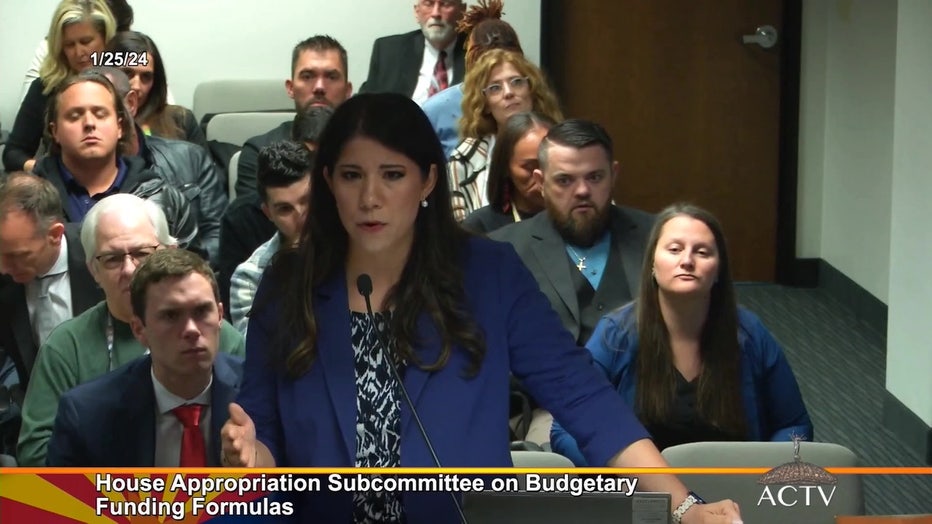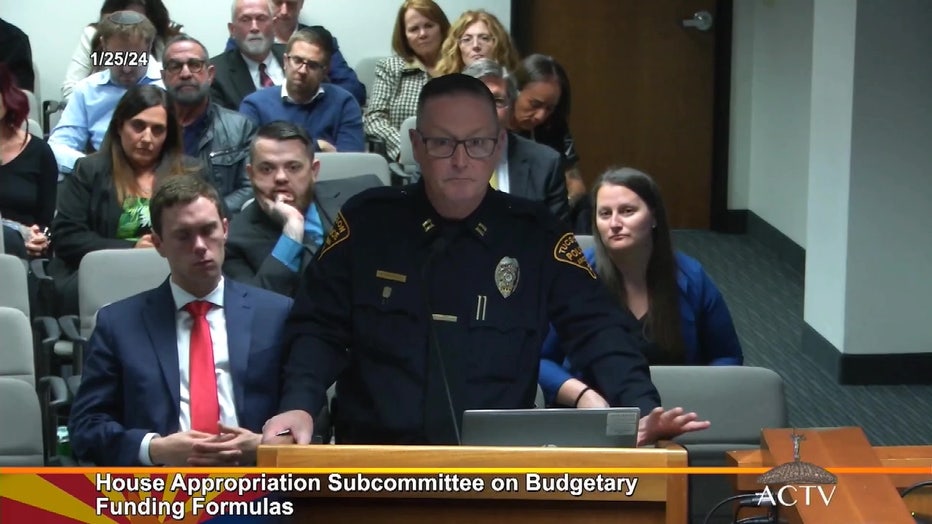Sober Living Scheme: Medicaid fraud addressed during meeting at Arizona State Capitol
PHOENIX - Leaders of state agencies addressed the Medicaid fraud scandal at the State Capitol on Jan. 25.
The sober living scheme targeted vulnerable people with addiction to defraud Arizona's Medicaid agency, AHCCCS, for nearly a billion dollars. Now, lawmakers are learning more about what’s been done to clean up the mess, as hundreds of behavioral health providers have been suspended.
The latest developments came as we approach a year since Governor Katie Hobbs announced a major crackdown on fraudulent rehab centers taking advantage of vulnerable people. The issue is widespread and complex, and more funding, along with more resources, are being requested.

Carmen Heredia, Executive Deputy Director of AHCCS.
Carmen Heredia, the Executive Deputy Director of AHCCCS, revealed new details of blatant fraud against the agency.
"As we’ve assisted people that have been victims of these schemes, they’ve now self-reported that they are not, in fact, American Indian, and were asked to enroll as such by bad actors," said Heredia.
The ‘bad actors,’ Heredia said, use shell companies, trading clients to each other via AHCCCS memberships, vulnerable people enrolled on the American Indian health plan so scammers can charge the state for behavioral health services rarely provided.
"The patients are the assets for these homes," said Nicholas Klingerman with the Arizona Attorney General's Office. "Quite frankly, they trade patients like they were any other economic asset for the business."
Patient brokering is a crime the Attorney General’s Office explained to the House Appropriation Subcommittee on Budgetary Funding. The Assistant Director of Licensing at the Arizona Department of Health Services said there has been an increase in complaints for unlicensed behavioral health residential facilities and sober living homes, expending resources.
"This past year, we’ve investigated a lot of allegations for these types of facilities, for all these unlicensed sober living homes," said Tom Salow. "We go on site, and we can’t license them. They don’t meet the definition."
The impact is clearly felt statewide. Tucson Police showed up at the meeting, detailing what we reported on last fall when 200 people at the Ocotillo Apartments and Hotel were left displaced, after a sober living program stopped paying rent.

Cpt. Mickey Peterson with Tucson Police.
"Initially, they were targeting the homeless population, and then mid-summer, that transitioned to the Native American population, and they were predominantly from our nations around the state and several from out of state. They were bringing them from out of state," said Cpt. Mickey Peterson.
The provider responsible had been suspended by AHCCCS, and was no longer being reimbursed for services. Out of the 300+ suspensions, some providers say appeals take months.
"There are a lot of legitimate providers that need to move forward," said Lynn Janson with Milestone Recvovery. "We need to have our due process."
Republican State Rep. Matt Gress asked the head of AHCCCS if the agency meets with providers to show Medicaid fraud allegations they face, outside of a suspension letter. Heredia said ‘no.’
"I'm just worried about the system capacity, as it stands right now, to help vulnerable people in Arizona," said State Rep. Gress.
AHCCCS wants 200 full-time employees, and IT resources for its 35-year-old computer system. The Attorney General's Office, meanwhile, wants to add six full-time employees.

